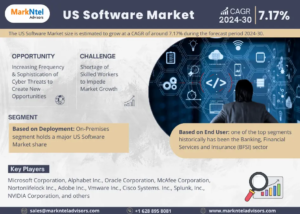How to Kickstart Your Career in Microsoft Azure in 2025: A Comprehensive Guide
In the rapidly evolving world of cloud computing, Microsoft Azure has emerged as a pivotal platform for businesses and technology professionals alike. As we step into 2025, the demand for skilled Azure professionals continues to surge, creating unprecedented opportunities for those looking to build a robust and rewarding career in cloud technology. Understanding the intricacies of Azure certification for Developers has become more critical than ever, with organizations worldwide seeking talented individuals who can leverage Azure’s powerful cloud infrastructure.
Understanding the Microsoft Azure Landscape in 2025
The cloud computing ecosystem has transformed dramatically over the past few years, and Microsoft Azure stands at the forefront of this technological revolution. Professionals who invest in developing comprehensive Azure skills will find themselves at a significant advantage in the job market. Whether you’re a recent graduate, an IT professional looking to transition, or an experienced technologist seeking to expand your skill set, Azure offers a wealth of opportunities.
Key Pathways to Azure Expertise
Embarking on an Azure career requires a strategic approach. The journey begins with a solid understanding of cloud fundamentals and progressively moves toward specialized certifications. Notably, obtaining an Azure solution architect certification can be a game-changer in your professional trajectory.
Building a Strong Foundation
Successful Azure professionals typically start by mastering core cloud computing concepts. This involves understanding fundamental cloud services, deployment models, and architectural principles. Microsoft provides numerous learning resources, including free online training, documentation, and hands-on labs that can help aspiring professionals build a robust knowledge base.
Certification Roadmap
The Azure certification pathway offers multiple tracks tailored to different career objectives. From fundamental certifications to advanced specializations, professionals can chart a course that aligns with their career goals. The Azure certification ecosystem includes several key levels:
- Azure Fundamentals
- Azure Administrator
- Azure Developer
- Azure Solution Architect
- Azure DevOps Engineer
Each certification represents a significant milestone in a professional’s Azure journey, demonstrating increasing levels of expertise and commitment to the platform.
Technical Skills Development
Developing technical proficiency requires more than just theoretical knowledge. Practical experience is crucial. Aspiring Azure professionals should focus on:
- Cloud infrastructure management
- Network configuration
- Security implementation
- Scalable application design
- Performance optimization
Hands-on practice through personal projects, sandbox environments, and real-world scenarios is essential for building confidence and competence.
Career Opportunities in the Azure Ecosystem
The Microsoft Azure job market in 2025 presents diverse and lucrative opportunities. Organizations across various industries—from healthcare and finance to manufacturing and entertainment—are increasingly adopting Azure for their cloud infrastructure needs.
Emerging Job Roles
Several specialized roles have gained prominence in the Azure ecosystem:
- Cloud Solution Architect
- Azure Cloud Engineer
- Cloud Security Specialist
- Azure DevOps Engineer
- Cloud Data Engineer
These roles offer competitive salaries and significant growth potential, making Azure a compelling career choice for technology professionals.
Continuous Learning and Adaptation
The cloud computing landscape evolves rapidly, and Azure professionals must commit to continuous learning. Staying updated with the latest technologies, attending conferences, participating in online communities, and pursuing advanced certifications are critical strategies for long-term career success.
Practical Steps to Launch Your Azure Career
1. Start with Fundamentals
Begin by understanding core cloud concepts and Azure’s basic services. Microsoft offers free online learning paths that provide an excellent starting point.
2. Choose Your Specialization
Identify the Azure career track that aligns with your interests and professional background. Whether you’re inclined towards development, administration, or architecture, there’s a specific path for you.
3. Invest in Certification Preparation
Leverage study materials, practice exams, and professional training courses to prepare for Azure certifications systematically.
4. Build a Professional Network
Engage with Azure communities, participate in forums, attend tech conferences, and connect with professionals already working in the field.
5. Create a Compelling Portfolio
Develop personal projects, contribute to open-source initiatives, and showcase your Azure skills through practical demonstrations.
Overcoming Common Challenges
Transitioning into an Azure career isn’t without challenges. Many professionals struggle with the breadth of technologies and the rapid pace of innovation. However, a structured learning approach, consistent practice, and a growth mindset can help overcome these obstacles.
Future Outlook for Azure Professionals
As cloud technologies continue to reshape the digital landscape, Azure professionals can look forward to exciting and rewarding career prospects. The convergence of artificial intelligence, machine learning, and cloud computing will create even more sophisticated opportunities for skilled Azure experts.
Advanced Azure Specialization Tracks
Cloud Security Specialization
As cybersecurity threats continue to evolve, Azure professionals with specialized security skills are in unprecedented demand. Organizations are seeking experts who can design, implement, and maintain robust cloud security architectures. This specialization requires a deep understanding of Azure Security Center, identity protection mechanisms, and advanced threat detection strategies.
Azure Data Engineering and Analytics
The exponential growth of data has created a massive demand for professionals who can transform raw data into actionable insights. Azure data engineering involves mastering services like Azure Databricks, Azure Synapse Analytics, and Power BI. Professionals in this track learn to design complex data pipelines, implement machine learning models, and create sophisticated business intelligence solutions.
Deep Dive into Azure Technology Stacks
Containerization and Kubernetes
Modern cloud infrastructure relies heavily on containerized applications. Azure Kubernetes Service (AKS) has become a critical skill for cloud professionals. Understanding container orchestration, microservices architecture, and deploying scalable applications requires a combination of technical expertise and strategic thinking.
Serverless Computing Strategies
Serverless computing represents the next frontier of cloud technology. Azure Functions and Logic Apps enable developers to create highly efficient, event-driven applications without managing the underlying infrastructure. Professionals who master serverless technologies can design more cost-effective and scalable solutions.
Emerging Technologies in the Azure Ecosystem
Artificial Intelligence and Machine Learning Integration
Azure’s AI and machine learning capabilities are revolutionizing how businesses approach complex problem-solving. Professionals can leverage Azure Machine Learning, Cognitive Services, and AI Builder to create intelligent applications that can learn, predict, and adapt.
Internet of Things (IoT) Solutions
Azure IoT Hub and related services are transforming industries by enabling connected device ecosystems. Cloud professionals who understand IoT architecture can help organizations develop sophisticated monitoring, tracking, and management solutions across various sectors.
Professional Development and Skill Enhancement
Advanced Networking Techniques
Mastering Azure networking goes beyond basic configuration. Professionals need to understand complex network architectures, implement advanced security protocols, create hybrid cloud environments, and optimize network performance across global infrastructures.
DevOps and Continuous Integration/Continuous Deployment (CI/CD)
Azure DevOps has become a cornerstone of modern software development practices. Professionals must learn to create robust pipeline strategies, implement automated testing, and manage complex deployment scenarios across multiple environments.
Industry-Specific Azure Applications
Healthcare Cloud Solutions
Azure offers specialized cloud solutions for healthcare, addressing critical needs like patient data management, telemedicine platforms, and compliant data storage. Professionals with domain-specific knowledge can create transformative healthcare technology solutions.
Financial Services Cloud Architecture
Financial institutions require highly secure, compliant, and scalable cloud infrastructures. Azure provides specialized services that meet stringent regulatory requirements while enabling innovative financial technologies.
Advanced Certification Strategies
Multi-Cloud Certification Approach
Forward-thinking professionals are expanding their expertise beyond a single cloud platform. Understanding how to integrate Azure with other cloud services like AWS and Google Cloud can provide a competitive edge in the job market.
Specialized Micro-Certifications
Beyond traditional certification paths, Azure now offers specialized micro-certifications that allow professionals to demonstrate expertise in specific technological domains, providing more granular skill validation.
Soft Skills for Azure Professionals
Communication and Consulting Capabilities
Technical expertise alone is insufficient. Successful Azure professionals must develop strong communication skills, allowing them to translate complex technical concepts for non-technical stakeholders and provide strategic cloud recommendations.
Project Management in Cloud Environments
Understanding cloud project management methodologies, budget optimization, and resource allocation are crucial skills that complement technical knowledge.
Future Predictions and Career Trajectories
Emerging Job Roles in 2025 and Beyond
The Azure ecosystem continues to evolve, creating new job roles that didn’t exist a few years ago. Cloud sustainability experts, AI ethics consultants, and advanced integration architects are emerging as critical positions in the technology landscape.
Global Career Opportunities
Azure professionals are no longer confined to local job markets. Remote work and global cloud infrastructure have opened unprecedented opportunities for talented professionals to work with international organizations.
Practical Implementation Strategies
Building a Personal Azure Lab
Creating a personal Azure lab environment allows professionals to experiment, learn, and demonstrate practical skills. This hands-on approach is invaluable for skill development and job preparation.
Open-Source Contribution and Community Engagement
Contributing to open-source projects, participating in Azure forums, and engaging with professional communities can significantly accelerate career growth and provide networking opportunities.
Technology Adaptation and Lifelong Learning
Staying Current with Technological Shifts
The rapid evolution of cloud technologies requires a commitment to continuous learning. Professionals must develop strategies for staying updated with the latest Azure features, services, and best practices.
Learning Resources and Continuous Education
Leveraging Microsoft Learn, online courses, webinars, and professional conferences can help Azure professionals maintain their competitive edge in a dynamic technological landscape.
Conclusion: Navigating Your Azure Career Journey
Embarking on a Microsoft Azure career in 2025 requires a holistic approach that combines technical expertise, strategic thinking, and continuous adaptation. By understanding the diverse opportunities, investing in comprehensive skill development, and maintaining a growth mindset, professionals can build rewarding and impactful careers in the cloud computing ecosystem.
The Azure landscape offers more than just a job—it presents an opportunity to become a transformative technology professional who can drive innovation, solve complex challenges, and shape the future of digital infrastructure.
Frequently Asked Questions (FAQs)
Q1: How long does it take to become Azure-certified?
A: Depending on your existing skills and study time, you can prepare for an Azure certification in 3-6 months of focused learning and preparation.
Q2: Are Azure certifications worth it in 2025?
A: Absolutely! Azure certifications continue to be highly valued by employers and can significantly enhance your career prospects in cloud computing.
Q3: What is the average salary for an Azure professional?
A: Azure professionals can earn between $80,000 to $150,000 annually, depending on their experience, certification level, and specific role.
Q4: Can I learn Azure without a technical background?
A: Yes, with dedication and the right learning resources, individuals from various backgrounds can successfully transition into Azure careers.
Q5: Which Azure certification should I start with?
A: The Azure Fundamentals (AZ-900) certification is recommended for beginners as an excellent entry point into the Azure ecosystem.
Q6: How often do Azure certifications need to be renewed?
A: Most Azure certifications are valid for two years, after which you’ll need to complete a renewal assessment to maintain your certification.
Q7: Can I prepare for Azure certifications through online resources?
A: Yes, Microsoft offers extensive free online learning paths, documentation, and practice resources for certification preparation.
Q8: What programming languages are most useful for Azure?
A: Python, JavaScript, C#, and PowerShell are particularly valuable for Azure professionals.
Q9: Are there free ways to gain Azure experience?
A: Microsoft offers free Azure accounts with credits, sandbox environments, and learning resources for hands-on practice.
Q10: What’s the difference between Azure Administrator and Azure Developer certifications?
A: Azure Administrator focuses on managing cloud infrastructure, while Azure Developer concentrates on designing, building, and maintaining cloud applications.














Post Comment